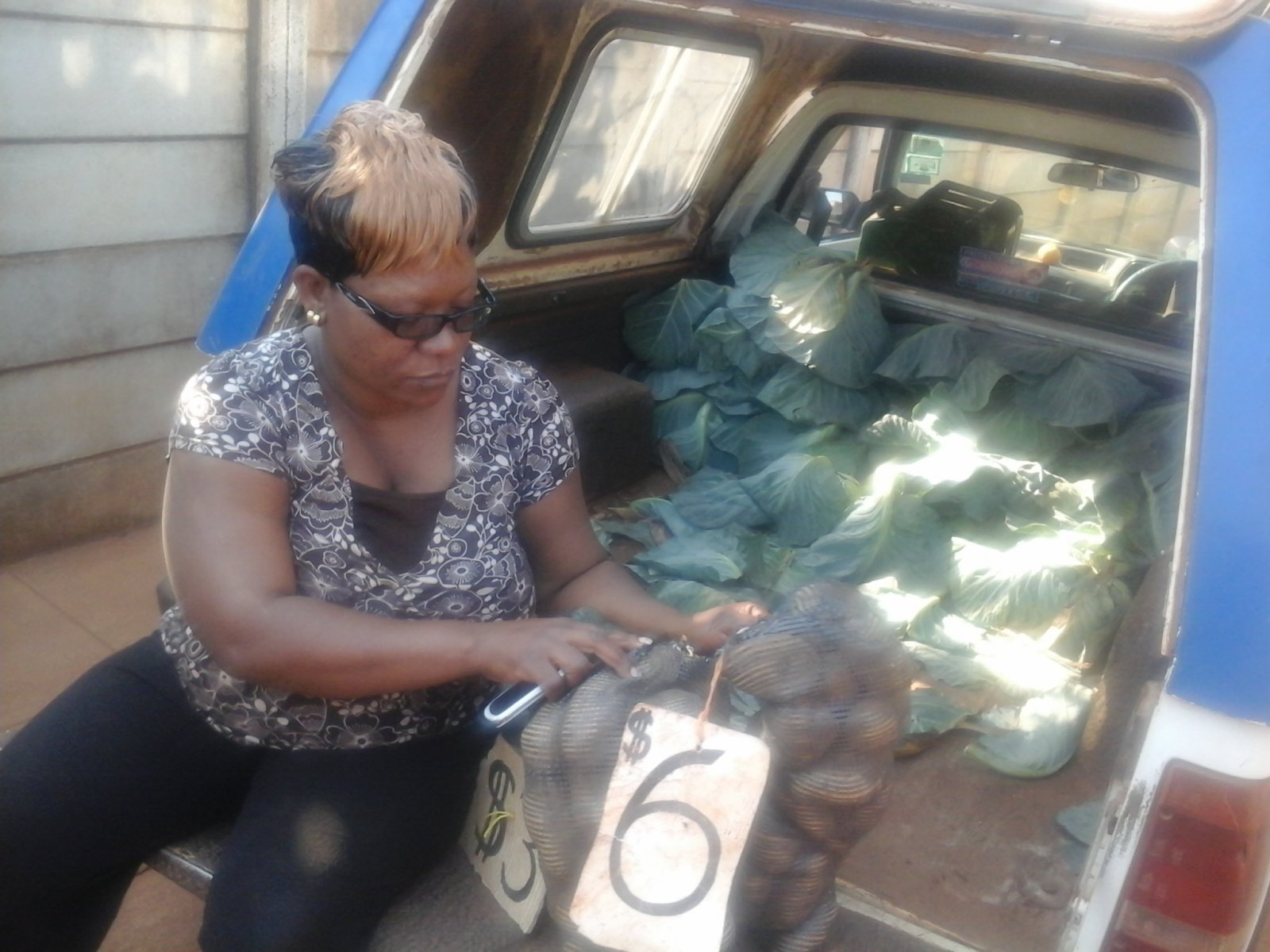The personal is political - the transformational life of Patience Chimbiti
May 28, 2019
Story

Patience Chimbiti is a transformational woman leader who has indeed left a permanant mark on her children, husband, family and community, as well as on her fellow market women. Starting within her own family, Patience has identified the needed change, created a vision to guide the change through inspiration, and executed her change leadership with the commitment of her husband, as well as that of her neighbours and club members, despite the seemingly insurmountable challenges she faced.
Patient's story of transformation started when her husband was sacked from employment for a crime he did not commit, and suddnely her family was without income. Being a housewife, and with no savings at all from her husband, Patience realised the need for her to be creative in order to sustain her family.
Using the organising skills she gained from a workshop on feminist movement building held by Just Associates where she had occasion to attend in October 2013, Patience mobilised a group of 30 market women to form a peace club. The thirty women agreed to contribute a dollar a week to form a rotational fund where the needy women could borrow, buy various small items for resale and pay back with little interest.
From those small sources, Patience encouraged the other women to identify their talent and start small projects to sustain their families. Patience's passion is selling vegetables for daily consumption, and she started a small market stall where she sold tomatoes, onions, leafy vegetables, potatoes and sweets. Slowly but surely Patience was able to sustain her family, buy food, pay school fees, buy clothes and pay legal fees for her husband's lawyer. Other women ventured into second hand clothes, market gardening and airtime vending.
Nine months later, the women raised their weekly contributions to a monthly contribution of USD50.00, and after a year Patience was able to borrow from this fund and buy a small truck to boost her vegetable business. This is what Patience had to say about herself.
"I refused to believe that my life in the city had ended when my husband lost his job. I have never wanted my children to grow up in the rural areas, I have always wanted better education for them. I vowed to work hard together with my group of market women inorder to transform my status, as well as the positon of other women. My children and husband have learnt to respect me, and in my community women who want to start projects come to consult me on how to do it. As a group we have formed a community banking society, and we contribute money every month to bank as insurance against severe sickness and death in our families. My children are going to school and the elder one who was in grade seven when my husband lost his job five years ago is now in upper secondary school. She would like to be a lawyer when she grows up. My business has grown unique, I am now a mobile vegetable vendor, and I drive my small van to various offices to delievr fresh vegetables, while my husband looks after the stall here in the market. When I come back my husband goes back home to do homework with the children and prepare their stuff for school the next daym as well as prepare our dinner. Our roles have shifted and we no longer believe that this is a man's or a women's job. Each one of us does what is necessary."
In the market we discuss various issues about our well-being as I leanrt form Just Associates. However, because I only attended one workshop, I do not know what to do to get further knwoledge for my group.
Patience is indeed a visionary and with proper support, she can get both her family and her community far, yet no one recognises her transformaitonal eladership skills except those who know her. Regarding self care, Patience siad, "Just Associates taught me that my body is political, and that it is important for my body to be preserved in order for me to continue to have impact. I take care of my hair, as you can see my hair style, and even if I sell in the open market, I always do my pedicure and manicure, as you can see that my nails look professional. I consider this informal trade my profession, and my clients have a lot to elarn from me since most of them are women. My body is important, it is politica and I budget for it."




